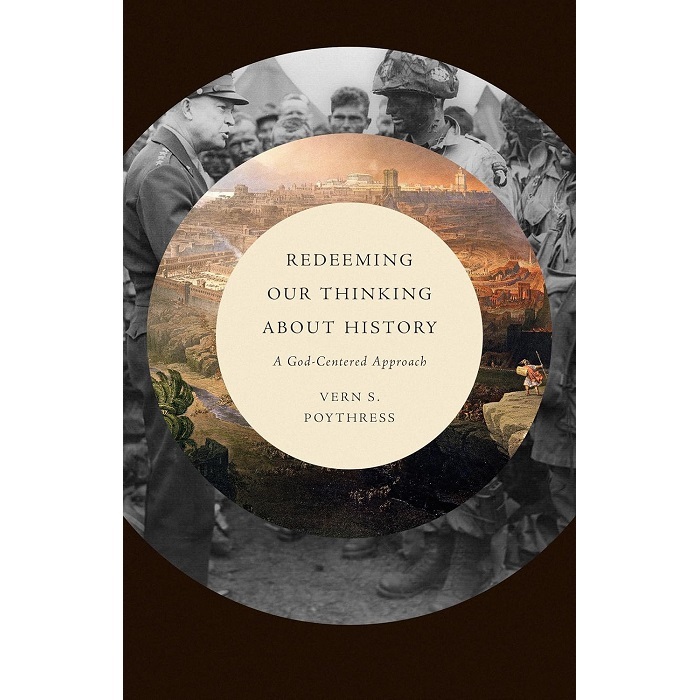Description
Why Is It Critical for Christians to Study the Past?
How does knowledge of the past shape Christians' views of God, Christ's redemption, and humanity as a whole? In his new book, Vern S. Poythress teaches Christians how to study and write about the past by emphasizing God's own command to remember his works and share them with the next generation. Readers will explore concepts such as providentialism, Christian historiography, divine purpose, and the 4 basic phases of biblical history: creation, fall, redemption, and consummation. By learning how to appropriately study history, believers will begin to recognize God's lordship over all events and how even minor incidents fit into his overarching plan.
Excellent Resource for Seminary Students, Pastors, and Historians: Poythress explains how to write about history, understand God's divine purposes, explore history in the Bible, and more
Applicable: Teaches readers how to glorify God by recognizing his deeds throughout history
Biblical and Informative: Outlines 4 phases of history and connects them to Christ's redemption
Endorsements
"Vern Poythress has written carefully about how a proper Christian doctrine of providence should (and should not) shape a believer's understanding of human history. His book is particularly welcome in showing that 'history' includes a wide range of possibilities and that most of them can contribute (though in different ways) to Christian study of the past."
Mark Noll, Research Professor of History, Regent College; author, America's Book: The Rise and Decline of a Bible Civilization, 1794–1911
"Can we think Christianly about history in its two senses of the events of the past and the written account of those events? Vern Poythress affirms that we can. He seeks guidance from the Bible about how the past should be understood by believers and about how Christian historians should undertake their vocation. He places God at the center of both."
David Bebbington, Emeritus Professor of History, University of Stirling
Table of Contents
Chapter 1: The Importance of History
Part 1: What We Need in Order to Analyze History: Essential Resources That God Supplies
Chapter 2: Experiencing History
Chapter 3: Foundations for Historical Analysis
Chapter 4: Spiritual Antithesis: Darkness and Light
Chapter 5: Reductionistic Historical Analysis
Chapter 6: Understanding People
Chapter 7: Understanding Historical Causes
Chapter 8: Miracles
Part 2: History in the Bible: How the Bible Goes about Writing History
Chapter 9: Unity in Biblical History
Chapter 10: Diversity in Biblical History
Chapter 11: The Uniqueness of the Bible
Part 3: Understanding God's Purposes in History: Divine Purposes—and Our Limitations—in the Study of History
Chapter 12: God in Biblical History
Chapter 13: Cautions in Understanding Divine Purposes
Chapter 14: The Value of Recognizing Divine Purposes
Chapter 15: Biblical Principles Guiding Historical Understanding
Chapter 16: Academic Historical Analysis
Chapter 17: Pressure toward Religious “Neutrality”
Chapter 18: Applying Principles from the Book of Revelation
Part 4: What Does History Writing Look Like? Examples of Challenges in Writing about Particular Periods
Chapter 19: Christianity in the Roman Empire
Chapter 20: Interpreting the Reformation and Beyond
Chapter 21: Histories of Other Civilizations
Part 5: Alternative Versions of How to Think about History: Competing Ways of Doing History among Christians
Chapter 22: Five Versions of Historiography
Chapter 23: Evaluating Providentialism
Chapter 24: Other Versions of Christian Historiography
Chapter 25: Perspectives on Historiography
Chapter 26: Further Reflection on Providentialism
Appendix: Providence according to Mark Noll
Bibliography
General Index
Scripture Index
Product Details
Title: Redeeming Our Thinking about History: A God-Centered Approach
Author: Vern S. Poythress
Publisher: Crossway Publishing
Pages: 256
Binding: Paperback
Size: 21.6 x 13.9 x 1.9 cm
ISBN: 9781433571442

